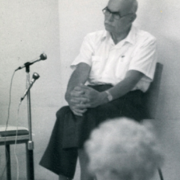‘Open People’, ‘Homo Clausus’ and the ‘5th Basic Assumption’: Bridging Concepts between Foulkes’s and Bion’s Traditions
Abstract
In this article I tried to bridge the split between the Foulkesian and the Bionian traditions, hence overcoming the outworn dispute between these two theories and practices. The main hypothesis in this article is that W.R. Bion and S.H. Foulkes tried to achieve the same goal, albeit coming from a different, yet complementary, direction. The metaphor which is being used describes Bion and Foulkes as two miners digging a tunnel under a river, each of them starting from the opposite bank. Bion and his followers tried to overcome the pathologies of groups which take control over individuals and abolish their individuality (Basic Assumption Groups), while Foulkes and his followers tried to overcome the pathologies of Individuals devoid of relational and communal existence (‘Closed People’; ‘We-less-I’s’). In order to overcome the split between these two traditions I discuss and develop Gordon Lawrence’s (1996) discovery of ‘Me-ness’ , the 5th Basic Assumption in the Bionian/Tavistockian tradition regarding the psychic condition of individuals in groups, and Norbert Elias’s (1939) social/psychological theory of ‘Homo Clausus'(‘Closed Man’), the fundamental basic assumption in the Foulksian Group-Analytic tradition regarding the social/psychological condition of individuals (and patients) in groups of modern societies.


